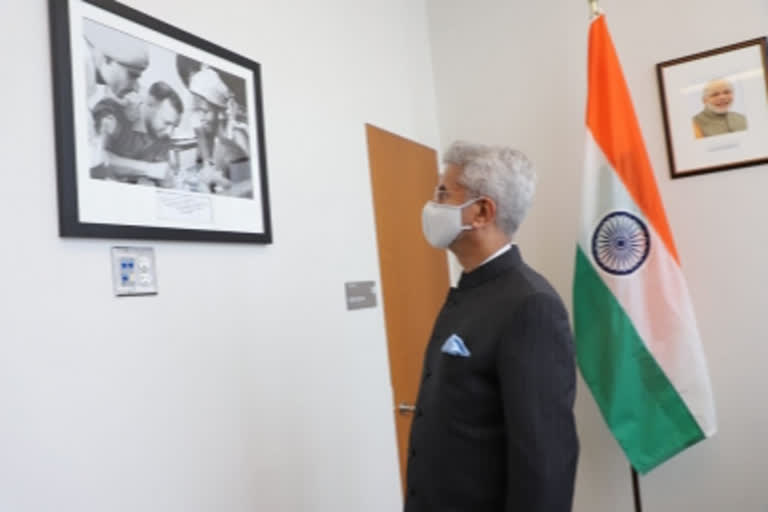United Nations: India on Wednesday proposed a multi-pronged plan to bring UN peacekeeping operations to the 21st century by deploying technologies to face the evolving threats. "UN peacekeeping simply cannot afford to cede the information advantage to those actors determined to undermine prospects for peace by using modern technology to aid their violent cause," India's External Affairs Minister S Jaishankar said at a Security Council debate on technology and peacekeeping.
"Twenty first century peacekeeping must be anchored in a strong ecosystem of technology and innovation that can facilitate UN peacekeeping operations in implementing their mandates in complex environments. "Because the nature of peacekeeping missions and their attendant threats have become more complex, it is vital that our capabilities to secure the peacekeepers keep pace," he said.
Secretary-General Antonio Guterres warned that new technologies "pose unfamiliar and profound threats, as seen most clearly in the online proliferation of violent extremist ideologies, increasingly prevalent cyber-attacks, and deadly vaccine misinformation. Emerging technologies are also blurring the lines between war and peace". Citing a need for acknowledging the new threats, he said: "States and non-state actors are carrying out malicious acts that fall below commonly understood thresholds for the use of force yet may still have devastating impact."
He added that it was, therefore, essential that UN peacekeeping "fully embraces the digital world in which we live, to improve the UN's agility, anticipation and responsiveness to conflicts, and to be able to address the challenges of today and tomorrow". India, which is the current President of the Council, convened the meeting from its experience of being the historically the biggest contributor to peacekeeping operations having sent about 250,00 peacekeepers of whom 174 paid the supreme sacrifice.
Also read: Afghan President Ashraf Ghani releases video, 1st since fleeing Kabul
The UN is introducing a technology-enhanced facility, UNITE Aware Platform for its peackeeping operations to provide realtime information to personnel. Jaishankar said that India is supporting the rollout of the UNITE Aware Platform, which would enable an entire peacekeeping operation to be visualised, coordinated, and monitored on a real-time basis.
"We should ensure that any attack on a peacekeeper or a civilian is predictable, preventable, or responded to immediately," Jaishankar said. "India is committed to long term engagement with the UNC4ISR Academy for Peace Operations in Entebbe, Uganda, to meet the training needs, link it with available technological capability, and shape future requirements," he said.
These are Jaishankar's four-point programme for 21st century peacekeeping:
- Focus on operationally proven, cost-effective, widely available, reliable and field-serviceable technologies.
- Deploying a sound information and intelligence foundation to provide early warning and mobilisation of early response with precise positioning and overhead visualisation of mission environments.
- Ensure that technological improvements are continuous and are available on the ground, "in the gear peacekeepers carry and the weapons and tools they use".
- Provide consistent training and capacity building of peacekeepers in the realm of technology needs attention and investment.
Also read: Sikhs trapped in Afghanistan appeal for immediate evacuation
(IANS)



